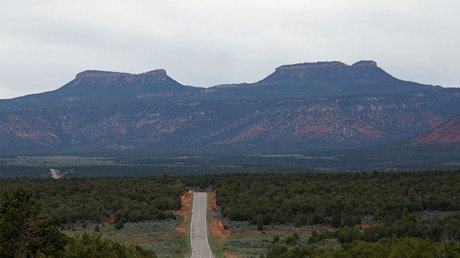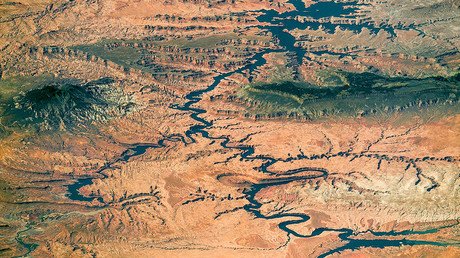Navajo Nation sues ‘predatory’ Wells Fargo for $50mn

The Navajo Nation is suing Wells Fargo for $50 million, saying the bank used “unlawful practices” to trick its members. The suit comes on the heels of a new study suggesting the tribe could benefit from evolving energy markets.
The lawsuit was filed in the US District Court in New Mexico on Wednesday. The suit says that Wells Fargo employees routinely tricked members into opening unnecessary bank accounts, and then set up credit or debit cards without consent and collected fees that had not been authorized. The tribe declared Wells Fargo had engaged in "predatory and unlawful practices."
The complaint filed in relation to the lawsuit further states that elderly Navajos were duped into purchasing products so Wells Fargo could meet sales quotas and collect fees.
“Under intense pressure from superiors to grow sales figures, Wells Fargo employees lied to Navajo consumers, telling elderly Navajo citizens who did not speak English that in order to have their checks cashed they needed to sign up for savings accounts they neither needed nor understood,” the complaint read, AZ Central reported.
The complaint also said that representatives from Wells Fargo “stalked local events like basketball games and flea markets to sign up consumers for unnecessary accounts en masse, especially targeting Navajo women who sold native crafts and products.”
Wells Fargo said in a statement that it could not comment on the lawsuit, but is currently working at “rebuilding trust,” and at the same time “building a better bank,” AZ Central reported.
The lawsuit follows a new study that was shared on Tuesday during a meeting at San Juan College's School of Energy, and examines the possibilities of creating a viable economic future for the Navajo through evolving energy markets, according to the Daily Times.
The study was conducted by a Flagstaff, Arizona-based company called ETD Inc and focuses on a 50-mile radius around Navajo land, including the Navajo Generating Station, the Kayenta Mine, the Navajo Mine and the Four Corners Power Plant.
Each of the areas is impacted by changes in energy production, Eunice Tso, owner and president of ETD, said during the meeting. Tso added that the study addresses goals and strategies to guide the Navajo for future implementation.
Tso and president and CEO of the Economic Collaborative of Northern Arizona in Flagstaff, John Stigmon, presented eight economic development strategies highlighted in the study during the meeting.
The strategies include expanding agriculture with modern water techniques, enhancing tourism, continuing to develop outlets for information technology, enhancing hospitality and expanding utility infrastructure.
Stigmon noted that one of the ways the Navajo can enhance tourism on their land is to take advantage of its location near multiple national parks. One of the study's many recommendations suggests that Navajo highways should be called scenic byways.
READ MORE: One of last WWII Navajo code talkers dies aged 94
“One of the things that we feel passionate about in our project is, we don't want plain cut-and-paste strategies,” Tso said, according to the Daily Times.
The study listed strengths and weaknesses in relation to economic development on the Navajo reservation. The strengths include the tribe's rich cultural history and the potential to grow its agricultural industry. The weaknesses include inadequate public safety and problems in relation to a lack of housing for the tribe's workers.
Several comments were made during the meeting by attendees. Some voiced their concerns about challenges faced by the tribe's chapters when attempting to navigate the tribal government system. Others mentioned the difficulty of obtaining funding for projects while maintaining a balance between tradition and promoting economic growth.
Funds for the study were granted by the US Economic Development Administration's Partnerships for Opportunity and Workforce and Economic Revitalization Initiative, and was administered by the Navajo Nation Division of Economic Development.
Earlier in December, five Native American tribes pledged to sue the administration of President Donald Trump over his decision to shrink the Bears Ears National Monument in Utah.















